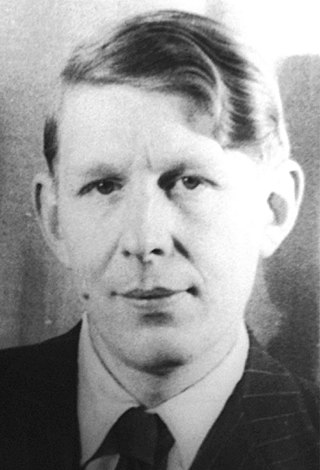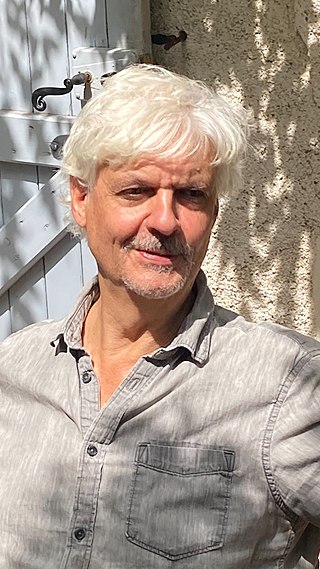Related Research Articles

Thomas Stearns Eliot was a poet, essayist, publisher, playwright, literary critic and editor. He is considered to be one of the 20th century's greatest poets, as well as a central figure in English-language Modernist poetry. His use of language, writing style, and verse structure reinvigorated English poetry. He is also noted for his critical essays, which often reevaluated long-held cultural beliefs.

Edward James Hughes was an English poet, translator, and children's writer. Critics frequently rank him as one of the best poets of his generation and one of the twentieth century's greatest writers. He was appointed Poet Laureate in 1984 and held the office until his death. In 2008 The Times ranked Hughes fourth on its list of "The 50 greatest British writers since 1945".

Wystan Hugh Auden was a British-American poet. Auden's poetry is noted for its stylistic and technical achievement, its engagement with politics, morals, love, and religion, and its variety in tone, form, and content. Some of his best known poems are about love, such as "Funeral Blues"; on political and social themes, such as "September 1, 1939" and "The Shield of Achilles"; on cultural and psychological themes, such as The Age of Anxiety; and on religious themes, such as "For the Time Being" and "Horae Canonicae".

Matthew Arnold was an English poet and cultural critic. He was the son of Thomas Arnold, the headmaster of Rugby School, and brother to both Tom Arnold, literary professor, and William Delafield Arnold, novelist and colonial administrator. He has been characterised as a sage writer, a type of writer who chastises and instructs the reader on contemporary social issues. He was also an inspector of schools for thirty-five years, and supported the concept of state-regulated secondary education.

In prosody, alliterative verse is a form of verse that uses alliteration as the principal device to indicate the underlying metrical structure, as opposed to other devices such as rhyme. The most commonly studied traditions of alliterative verse are those found in the oldest literature of the Germanic languages, where scholars use the term 'alliterative poetry' rather broadly to indicate a tradition which not only shares alliteration as its primary ornament but also certain metrical characteristics. The Old English epic Beowulf, as well as most other Old English poetry, the Old High German Muspilli, the Old Saxon Heliand, the Old Norse Poetic Edda, and many Middle English poems such as Piers Plowman, Sir Gawain and the Green Knight, Layamon's Brut and the Alliterative Morte Arthur all use alliterative verse.

Harold Edward Monro was an English poet born in Brussels, Belgium. As the proprietor of the Poetry Bookshop in London, he helped many poets to bring their work before the public.

Paul Muldoon is an Irish poet.

Basil Cheesman Bunting was a British modernist poet whose reputation was established with the publication of Briggflatts in 1966, generally regarded as one of the major achievements of the modernist tradition in English. He had a lifelong interest in music that led him to emphasise the sonic qualities of poetry, particularly the importance of reading poetry aloud: he was an accomplished reader of his own work.
Thomson William "Thom" Gunn was an English poet who was praised for his early verses in England, where he was associated with The Movement, and his later poetry in America, even after moving towards a looser, free-verse style. Gunn wrote about his experience moving to San Francisco from England. He received numerous literary honors, and his best poems are reputed to possess a restrained elegance of philosophy.
Michael Roberts, originally named William Edward Roberts, was an English poet, writer, scientist, mathematician, critic and broadcaster, a polymath who made his living as a teacher.
John Francis Alexander Heath-Stubbs was an English poet and translator. He is known for verse influenced by classical myths, and for a long Arthurian poem, "Artorius" (1972).

Peter Neville Frederick Porter OAM was a British-based Australian poet.
Bernard O'Donoghue FRSL is a contemporary Irish poet and academic.

David John Murray Wright was an author and "an acclaimed South African-born poet".
Nationality words link to articles with information on the nation's poetry or literature.
Nationality words link to articles with information on the nation's poetry or literature.
Nationality words link to articles with information on the nation's poetry or literature.
Nationality words link to articles with information on the nation's poetry or literature.

Stephen Romer, FRSL is an English poet, academic and literary critic.

In Western classical music tradition, Lied is a term for setting poetry to classical music to create a piece of polyphonic music. The term is used for any kind of song in contemporary German and Dutch, but among English and French speakers, lied is often used interchangeably with "art song" to encompass works that the tradition has inspired in other languages as well. The poems that have been made into lieder often center on pastoral themes or themes of romantic love.
References
- 1 2 3 4 5 Ousby, Ian, ed. (1993). The Cambridge Guide to Literature in English . Cambridge: Cambridge University Press. p. 721. ISBN 0-521-44086-6.
- ↑ Burton, Richard (2013). A Strong Song Tows Us, Oxford, Prospecta Press/ Infinite Ideas
- ↑ "Bookride: Writers who were invalids...Clere Parsons & W. N. P. Barbellion". 5 April 2009. Retrieved 19 September 2010.